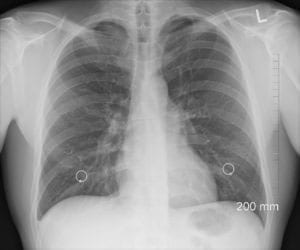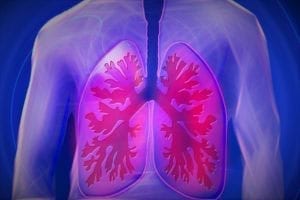Small Cell Lung Cancer (SCLC)
What is small cell lung cancer?
Small cell lung cancer (SCLC) is an aggressive form of lung cancer that accounts for 15% of lung cancer diagnoses. There are two forms of SCLC: combined small cell carcinoma and small cell carcinoma.
What are the symptoms of small cell lung cancer?
In the early stages, this cancer often does not cause any symptoms. As it progresses, the effects will appear, such as fatigue, facial swelling, chest pain, chronic cough, coughing up blood, swollen neck veins, difficulty breathing, wheezing, unexplained weight loss, hoarseness, and a loss of appetite. Possible complications of this cancer include pleural effusion and recurrence after treatment.
What causes small cell lung cancer?
Medical professionals are unsure of the exact cause of SCLC, but they have identified a number of risk factors. These include a family history of lung cancer, smoking, air pollution, being of older age, HIV, secondhand smoke, exposure to radiation, and workplace exposure to certain chemicals.
How is small cell lung cancer diagnosed?
The first step in diagnosing SCLC is a chest X-ray, in which doctors will look for any suspicious spots on the lungs. This will be followed by any of these tests: biopsies, bronchoscopies, sputum cytologies, and imaging tests.
What are the treatments for small cell lung cancer?
Doctors will decide a treatment plan based on the cancer’s stage, the patient’s age, and the patient’s overall health. Treatment options include surgery, chemotherapy, immunotherapy, and radiation.
Where can I find out more about small cell lung cancer?
Small Cell Lung Cancer Articles

Analysis: Reasons for Small Cell Lung Cancer Patients Refusing Treatment


A Combination of Benmelstobart, Anlotinib, and Chemotherapy Improves Survival Rates in SCLC, Study Suggests



Senaparib and Temozolomide Earn Orphan Drug Designation for SCLC






